Join Our Groundbreaking Study: 2000 Participants Needed for Robot-Assisted Training.
We have been sharing our research results with hospitals and exploring how technology can further support patients.
We are now moving into the next phase of our project and are actively seeking 2000 participants to test our robot-assisted training program.
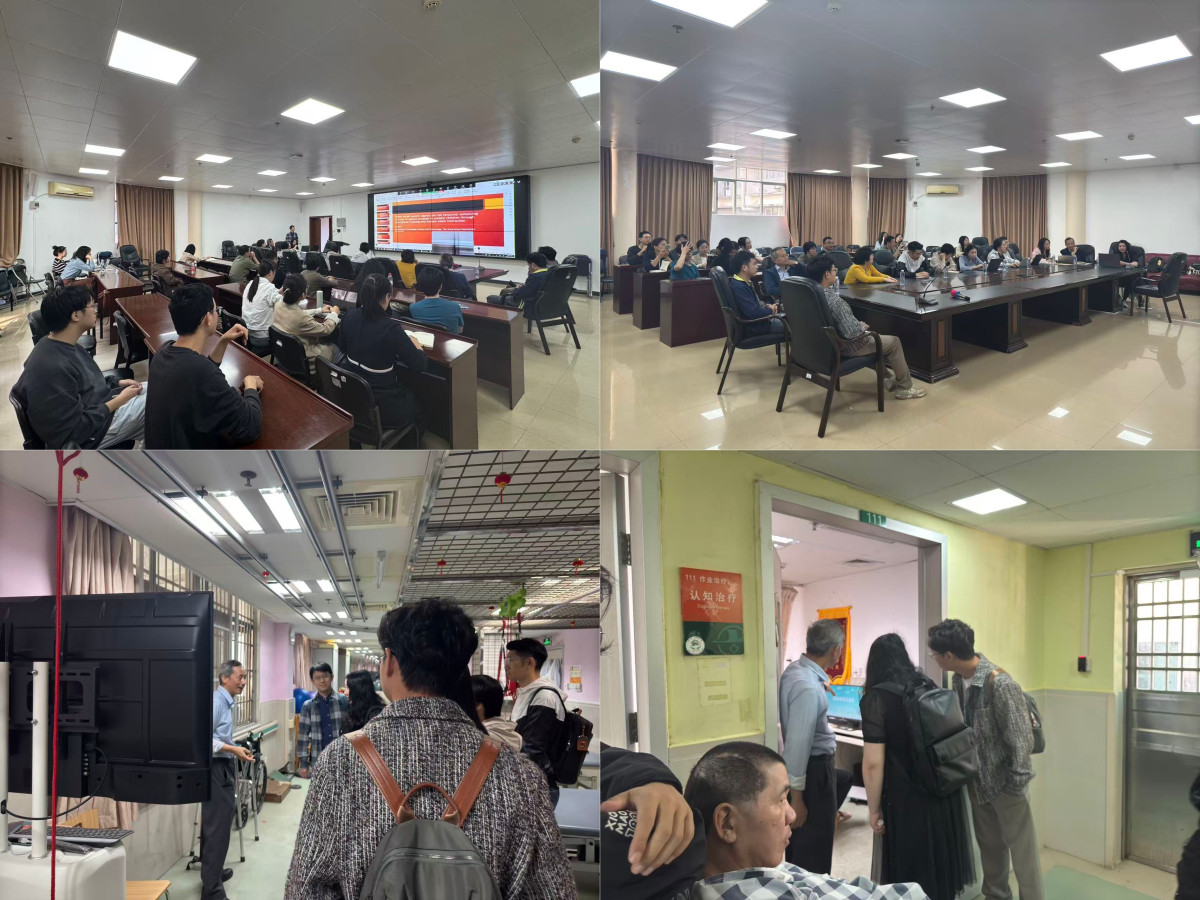
6
Last Updated at 2026/01/15
Dr. Si Chan's lab has successfully secured a GRF grant! 🎉🎊👏
Project Details
Funding Scheme: General Research Fund
Project Number: 15604425
Project Title(English):
The integration of two modalities: gesture and speech prosody in Cantonese focus marking in autistic and typical populations
Project Title(Chinese) :
Principal Investigator(English): Prof Chen, Si
Principal Investigator(Chinese) :
Department: Dept of Chinese and Bilingual Studies
Institution: The Hong Kong Polytechnic University
Co - Investigator(s) :
Dr Bosker, Hans
Dr Chan, Angel Wing-Shan
Prof Chen, Zhuoming
Dr Ge, Haoyan
Prof Li, Bin
Prof Sheng, Li
Miss Tang, Tempo Po-yi
Dr Wayland, Ratree
Panel: Humanities, Social Sciences
Subject Area: Psychology and Linguistics
Exercise Year: 2025 / 26
Fund Approved: 654,000
Project Status: On-going
Completion Date :
Abstract as per original application
(English/Chinese): Abnormal speech prosody and weak quality in manual gesture production have been widely reported in autistic individuals. However, in addition to the deficits found in separate modalities, autistic individuals may have difficulties in integrating gesture and speech prosody. Due to this potential deficit, intervention plans targeting at separate modalities may not be enough. A better understanding of the relationship between gesture and speech prosody may lead to an intervention plan that improves the integration and employs the effects of gesture to boost the use of speech prosody. It is thus high time that we study 1) the temporal relationship between speech prosody and gesture in Cantonese focus marking by typical and autistic populations. It is hypothesized that synchronization is planned between gesture and speech prosody for typical population, but autistic children may show difficulties in the temporal alignment between the two as the Weak Central Coherence theory posits that autistic children focus on uni-sensory information at the expense of multisensory perception; 2) the effects of gesture on the acoustic realization of speech prosody by typical and autistic populations. It is hypothesized that gesture may boost prosodic prominence in focus marking by typical population. However, autistic children may show reduced boosting effects due to difficulties in the integration across modes. Thirty-six autistic children, 36 typical developing children aged from 10 to 12 and 36 adults will complete three experiments eliciting focus marking in speech prosody with and without gesture. Acoustic cues will be extracted using Praat and annotation of gesture that accompanies the focal word in each utterance will be performed in ELAN. Four measurements will be carried out to measure the temporal relationship. Statistical modelling will be further applied to all the extracted data. This project will be among the first to investigate the potential deficits in the integration of the visual and auditory modalities in focus marking especially among autistic children. It enhances our understanding of the temporal relationship between speech prosody and gesture, as well as how gesture may affect the acoustic realization of speech prosody in both typical and autistic populations. Therefore, the project may provide potentially valuable information for the diagnosis of autism and the design of intervention plans. Based on the findings of this study, the intervention plan will be more comprehensive as it addresses the temporal alignment of two modes and gesture may be employed to improve acoustic realization of focus marking in speech.
N/A
Research Outcome
Layman's Summary of
Completion Report: Not yet submitted
Last Updated at
2025/07/02
Our former postdoc has also received a GRF grant. 🎉🎊👏
Funding Scheme: General Research Fund
Project Number: 15603425
Project Title(English): The role of AI in courtroom evidence evaluation: showcasing the impact in forensic voice comparison in Hong Kong
Project Title(Chinese) :
Principal Investigator(English): Dr WANG, Bruce Xiao
Principal Investigator(Chinese) :
Department: Department of English and Communication
Institution: The Hong Kong Polytechnic University
Co - Investigator(s) :
Dr Hughes, Vincent
Panel: Humanities, Social Sciences
Subject Area: Psychology and Linguistics
Exercise Year: 2025 / 26
Fund Approved: 986,808
Project Status: On-going
Completion Date :
Abstract as per original application
(English/Chinese): The integration of Artificial Intelligence (AI) into various sectors, including healthcare, education, and forensic sciences, is transforming our daily lives. In forensic science, particularly in biometric recognition such as facial and voice recognition, AI adoption has surged. Forensic voice omparison (FVC) is a critical area where AI-integrated automatic speaker recognition (ASR) systems are increasingly used to compare voice recordings from unknown offenders and known suspects. Despite the advancements in ASR technology, which has shown high accuracy in controlled conditions, the reliability of these systems under varying real-world conditions remains a significant concern. This distinction between accuracy and reliability is crucial, especially in forensic contexts where errors can lead to wrongful convictions or acquittals, as well as miscarriages of justice. This research aims to investigate the reliability of AI-integrated ASR systems in forensic contexts, focusing on the three most commonly spoken languages in Hong Kong: Cantonese, English, and Mandarin. We will examine how various conditions, such as speech feature extraction, natural variability in a speaker’s voice over time, and the choice of AI models, impact the reliability of these systems. The study will also investigate how these conditions might cause errors, such as misidentifying different speakers as the same person, leading to miscarriages of justice. The proposed study will be conducted in two working stages. In the first stage, we will focus on system reliability under different conditions, addressing whether ASR systems with better accuracy also ensure greater reliability concerning speech features, speech style, speech duration, and sample size. We will also investigate whether these attributes are influenced by specific languages or accents. In the second stage, we will investigate how speech samples from the same- or different-speakers interact with and respond to various AI-integrated ASR systems. We aim to investigate how the strength of evidence varies for individual speakers using different systems and what systematic properties of individual speakers make them more or less challenging for ASR systems to distinguish. The research will deliver new knowledge on the reliability of AI-integrated ASR systems in forensic contexts, providing empirical evidence on how various conditions and individual speaker characteristics impact system performance. This knowledge is crucial for forensic experts to demonstrate the reliability and accuracy of the methods employed in forensic comparison, ensuring that forensic evidence evaluation in court is based on reliable and consistent methods, thereby minimizing the risk of miscarriages of justice.
N/A
Research Outcome
Layman's Summary of
Completion Report: Not yet submitted
Last Updated at
2025/07/02
Congratulations to Dr. Yike Yang on obtaining a FDS grant!
Project Reference No: UGC/FDS15/H09/24
Title: Effects of Diverse Training Paradigms on Enhancing Comprehensibility of Cantonese Speech in Immigrants
PI: Dr YANG Yike
Funding Period: 18 months (Jan 2025 to June 2026)
Amount Awarded: HK$649,868
Abstract:
Although there is an increasing number of people learning a second language (L2), it is widely accepted that attainment of native pronunciation is unlikely for post-puberty L2 learners. From a more practical point of view, L2 learners and teachers should focus more on the comprehensibility of L2 speech, rather than the accent. One feature of L2 learning is the lack of sufficient exposure to the L2, even in the immigration setting. Thus, the proposed study will examine the effects of various short-term training paradigms on the enhancement of comprehensibility in immigrants’ L2 Cantonese, in the hope of providing effective training methods for immigrants to compensate for a lack of sufficient exposure.
This proposed study has three aims: (1) test the effects of different training methods on L2 comprehensibility enhancement; (2) systematically examine the effects of different training methods on lexical tone production and perception; and (3) combine both acoustic and perceptual measurements for analysis of L2 Cantonese speech. This study will recruit immigrants with no prior knowledge of Cantonese before arriving in Hong Kong and will prepare different training methods to enhance the comprehensibility of their L2 Cantonese. To investigate the training effects, the participants’ performance of various tasks will be tested before and after training sessions.
As the first attempt to systematically investigate the effects of different training methods on Cantonese tone production and perception, this study will provide insight into training effectiveness and advance our theoretical knowledge of L2 speech learning. Furthermore, the results of this research will also inform language teachers of the optimal training method for Cantonese tones, allowing teachers to revise their syllabi and pedagogies when teaching L2 learners of Cantonese.
Last Updated at
2024/10/13
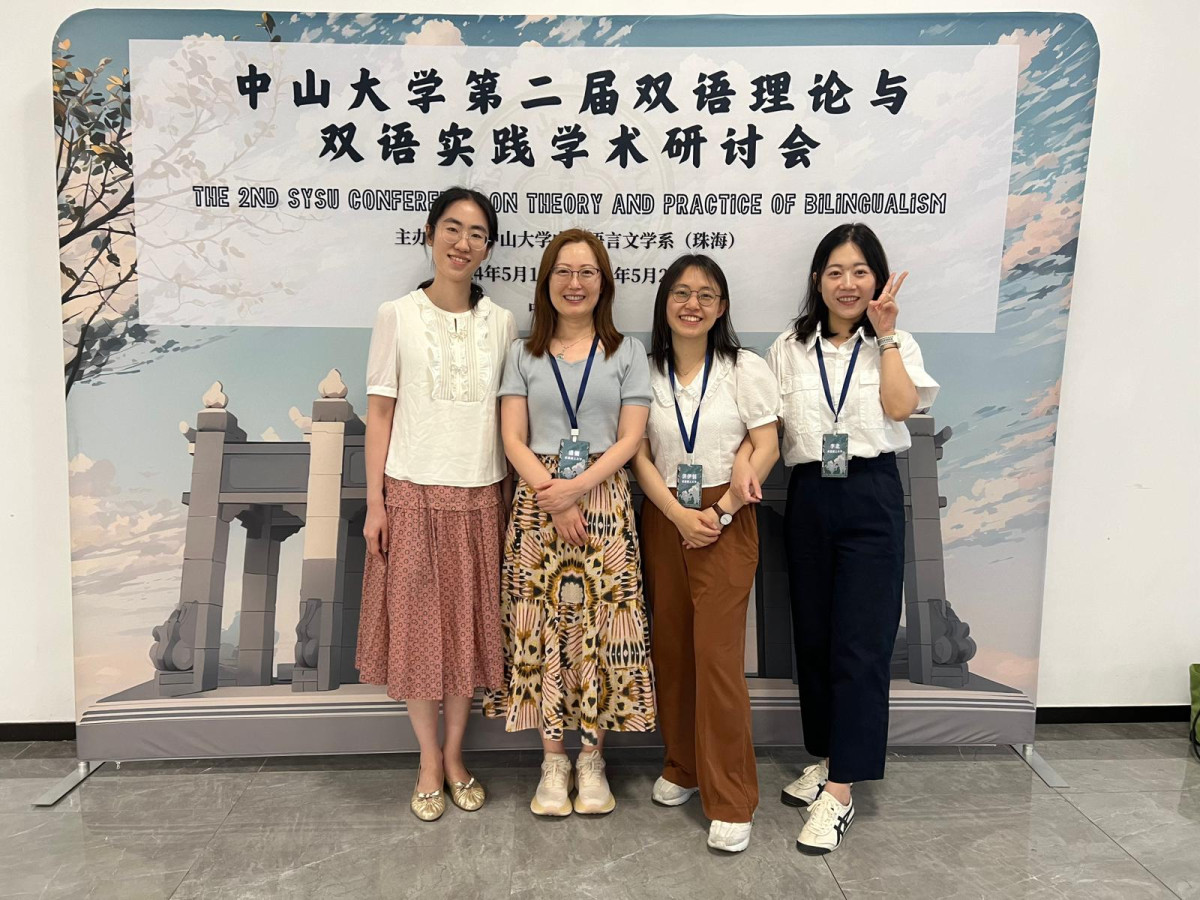
24
Our students and colleagues are invited to visit Sun Yat-sen University funded by Ten Thousand People Scheme of the Ministry of Education”
Last Updated at 2024/10/13
Our students and colleagues are invited to visit Sun Yat-sen University funded by Ten Thousand People Scheme of the Ministry of Education”
Last Updated at 2024/10/13
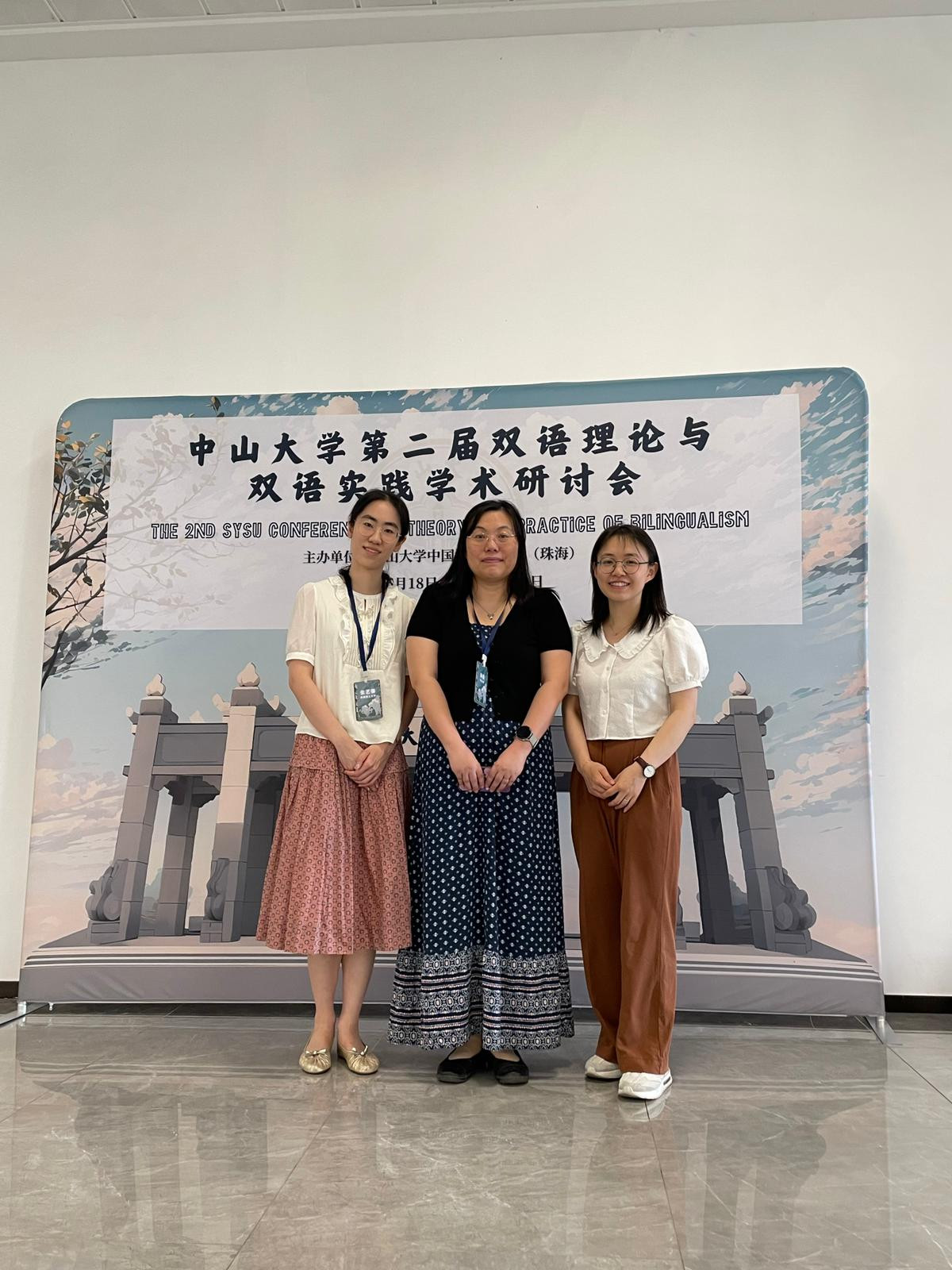
7
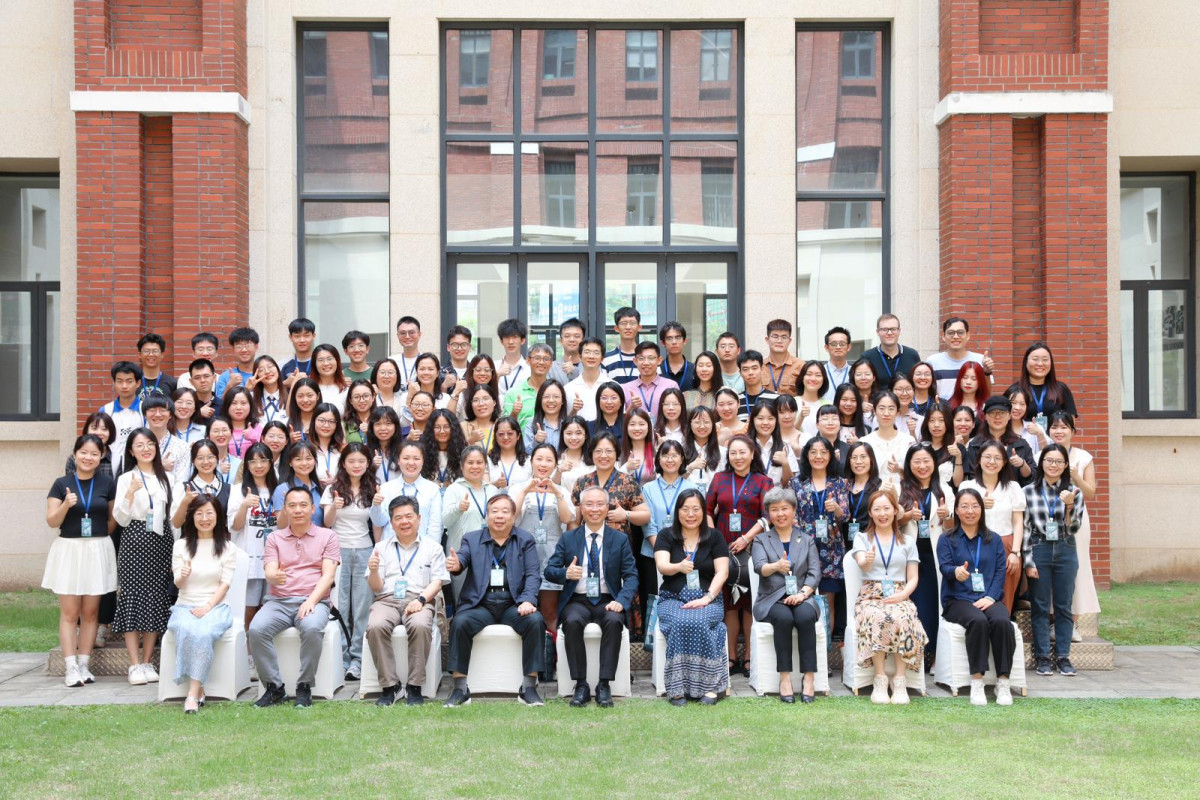
8
Our students and colleagues are invited to visit Sun Yat-sen University funded by Ten Thousand People Scheme of the Ministry of Education
Last Updated at 2024/10/13
Welcome a visit from a wonderful PhD candidate Xiyuan GAO to our lab and Dr. Bruce Wang’s lab funded by the EU COST Action Language in the Human-Machine Era (LITHME)
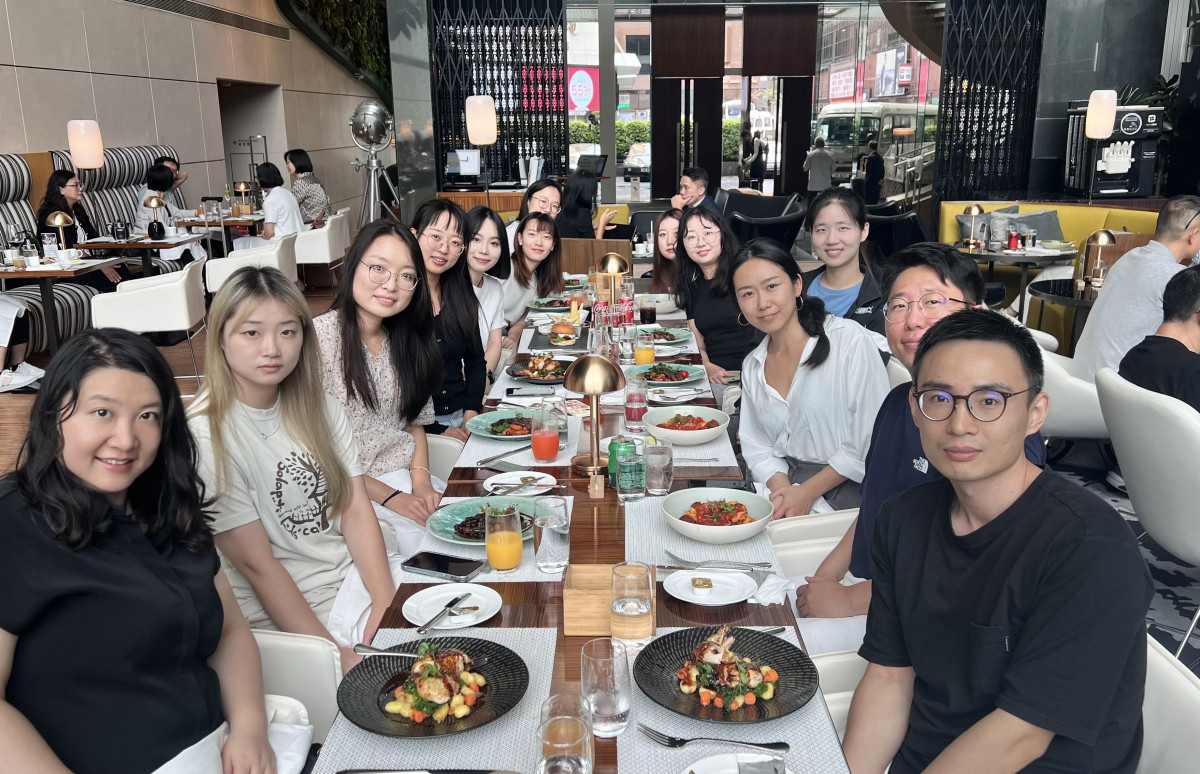
12
Last Updated at 2024/10/13
Congratulations to Bei Li on obtaining her PhD degree!
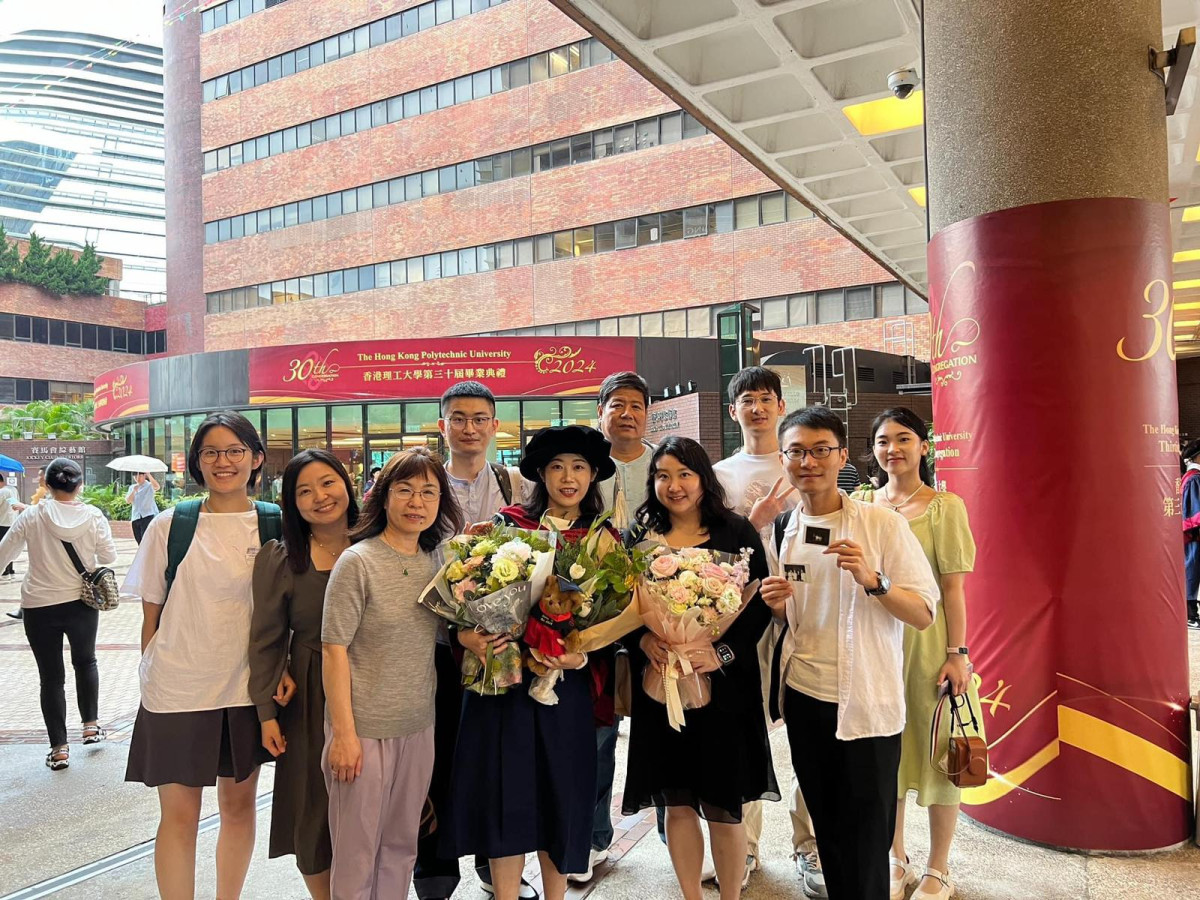
5
Last Updated at 2024/10/13
Our team has been awarded another research grant.
Our team has secured a new grant titled 'Multimodal and multilingual individualized training in improving empathy and emotion recognition by autistic children combining robotics and AR technology.' The project has been approved for a grant of HK$2,199,237.50 under the ITF scheme.
Last Updated at
2024/09/04
Education Secretary Explores CBS Speech and Language Sciences Laboratory
Accompanied by PolyU’s President, Prof. Teng Jin-Guang, Dr. the Hon. Christine Choi Yuk-lin, Secretary for Education, paid a visit to the CBS Speech and Language Sciences Laboratory on September 5th. This insightful visit included the participation of distinguished individuals, such as Ms. Michelle Li Mei-sheung (Permanent Secretary for Education), Mr. Jeff Sze Chun-fai (Under Secretary for Education), Dr. Yao Yao (Acting Dean of the Faculty of Humanities), Dr. Zhang Caicai (Associate Professor in the Department of Chinese and Bilingual Studies), and Dr. Chen Si (Assistant Professor in the Department of Chinese and Bilingual Studies).
During the visit, the esteemed CBS researchers introduced the laboratory's cutting-edge equipment designed to advance research in speech and language sciences. Notable highlights encompass a state-of-the-art social robot, utilized to facilitate speech training for children diagnosed with autism spectrum disorder (ASD). Furthermore, an advanced electroencephalography (EEG) system was showcased for measuring electrophysiological brain activities, while an innovative eye tracker captured the intricate eye movements of participants engaged in language processing.
In addition, we had the privilege of sharing our groundbreaking research initiatives in the domains of language, cognition, and neuroscience with Dr. Choi. The profound implications of our research findings are poised to significantly influence education development and clinical applications. These endeavors underscore our commitment to fostering meaningful advancements in education and the broader field of clinical practice.
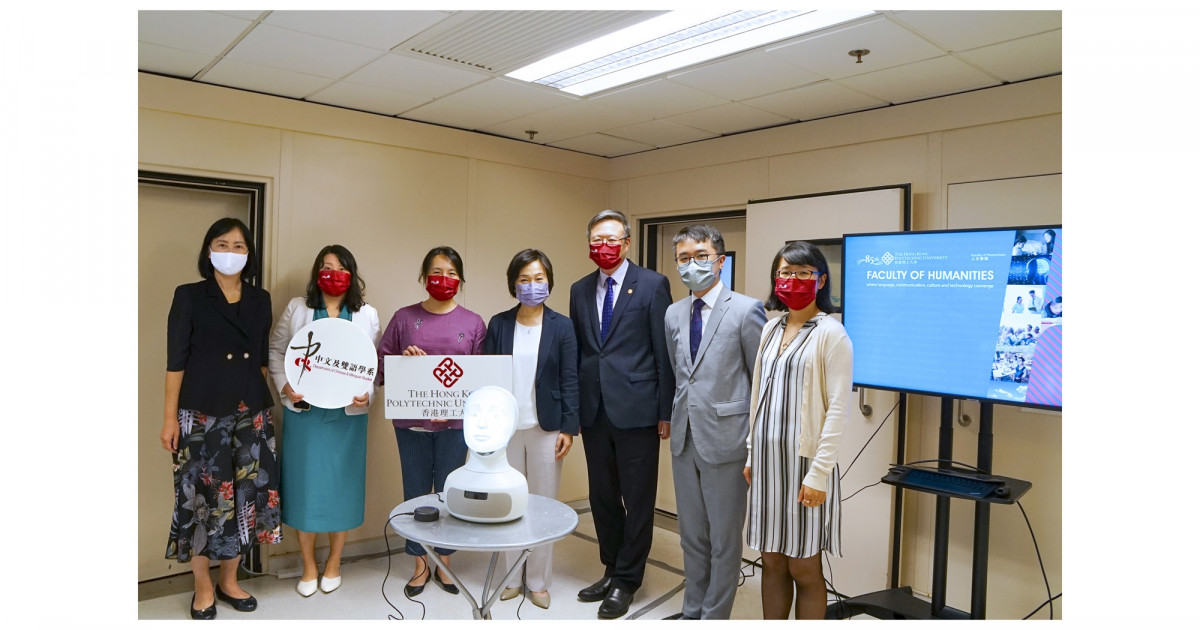
23
Last Updated at 2023/08/21
Celebrating Dr. Yike Yang's Achievement: Awarded HK$835,558 FDS Grant by RGC
We extend our heartfelt congratulations to Dr. Yike Yang, one of our distinguished Ph.D. graduates, for his remarkable accomplishment. Dr. Yang's dedication and expertise have led to the successful acquisition of an impressive HK$835,558 Future Distinguished Scholars (FDS) grant awarded by the Research Grants Council (RGC).
Dr. Yike Yang is a trailblazing researcher with a profound focus on multiple dimensions within the realm of linguistics. His scholarly pursuits span an array of captivating research areas, including language acquisition, psycholinguistics, speech production and perception, computer-assisted language learning, and corpus linguistics.
PhD Project: At the heart of his doctoral journey was a groundbreaking research endeavor titled "First Language Attrition and Second Language Attainment of Mandarin-speaking Immigrants in Hong Kong: Evidence from Prosodic Focus." Dr. Yang delved deep into the intricacies of linguistic evolution among Mandarin-speaking immigrants in Hong Kong, primarily through the lens of prosodic focus. His innovative exploration involved both a comprehensive production experiment and a perception study, which collectively shed light on crucial aspects of language acquisition and retention.
Key Findings: The results of Dr. Yang's PhD project yielded fascinating insights. His meticulous analysis uncovered evidence of Mandarin attrition in terms of production, while intriguingly, perception remained relatively unaffected. Additionally, it was revealed that the immigrant participants displayed a heightened sensitivity to acoustic cues compared to native Cantonese speakers. These groundbreaking observations have the potential to reshape prevailing paradigms in speech learning models.
Bilingual Prosody Transfer Model (BPTM): Dr. Yang's pioneering work went beyond the confines of conventional understanding, leading him to propose the Bilingual Prosody Transfer Model (BPTM). This revolutionary framework posits that prosodic features between a native language (L1) and a second language (L2) can be effectively transferred, even for individuals who acquire the second language later in life. This conceptual advancement holds significant implications for the study of prosody in bilingual speakers.
Dr. Yike Yang's journey is a testament to his dedication, intellectual curiosity, and unwavering commitment to pushing the boundaries of linguistic research. His accomplishments underscore his contributions not only to academia but also to the broader understanding of language acquisition and bilingualism. We celebrate Dr. Yang's remarkable achievements and eagerly anticipate the transformative impact his work will continue to have in the realm of linguistics.
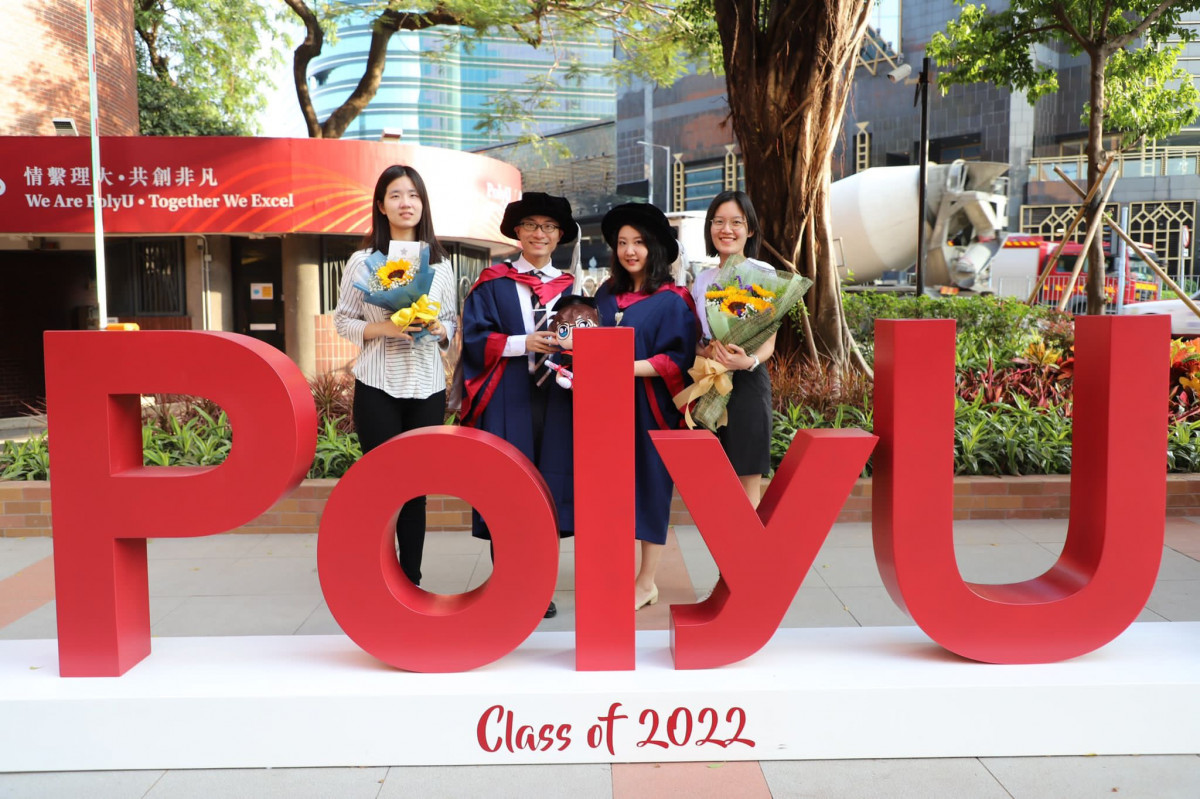
24
Last Updated at 2023/08/21
Dr. Xiao Wang Recognized: Receives 'Rising Star of Yuen Ren Chao Experimental Linguistics' Award
Dr. Xiao Wang, our accomplished post-doctoral fellow, has been honored with the esteemed 'Rising Star of Yuen Ren Chao Experimental Linguistics' award. With a focus on forensic speech science, sociophonetics, and Bayesian analysis, Dr. Wang's expertise shines in addressing critical challenges.
During his PhD, he delved into forensic voice comparison, shedding light on the importance of measuring and minimizing uncertainty in forensic evidence. His application of Bayesian analysis enhances reliability, marking a significant stride in this field.
Dr. Wang's achievements not only mark his excellence but also hold promise for advancing forensic linguistics and experimental linguistics as a whole. His contributions reflect a dedication to innovative research and a profound impact on the discipline's future.
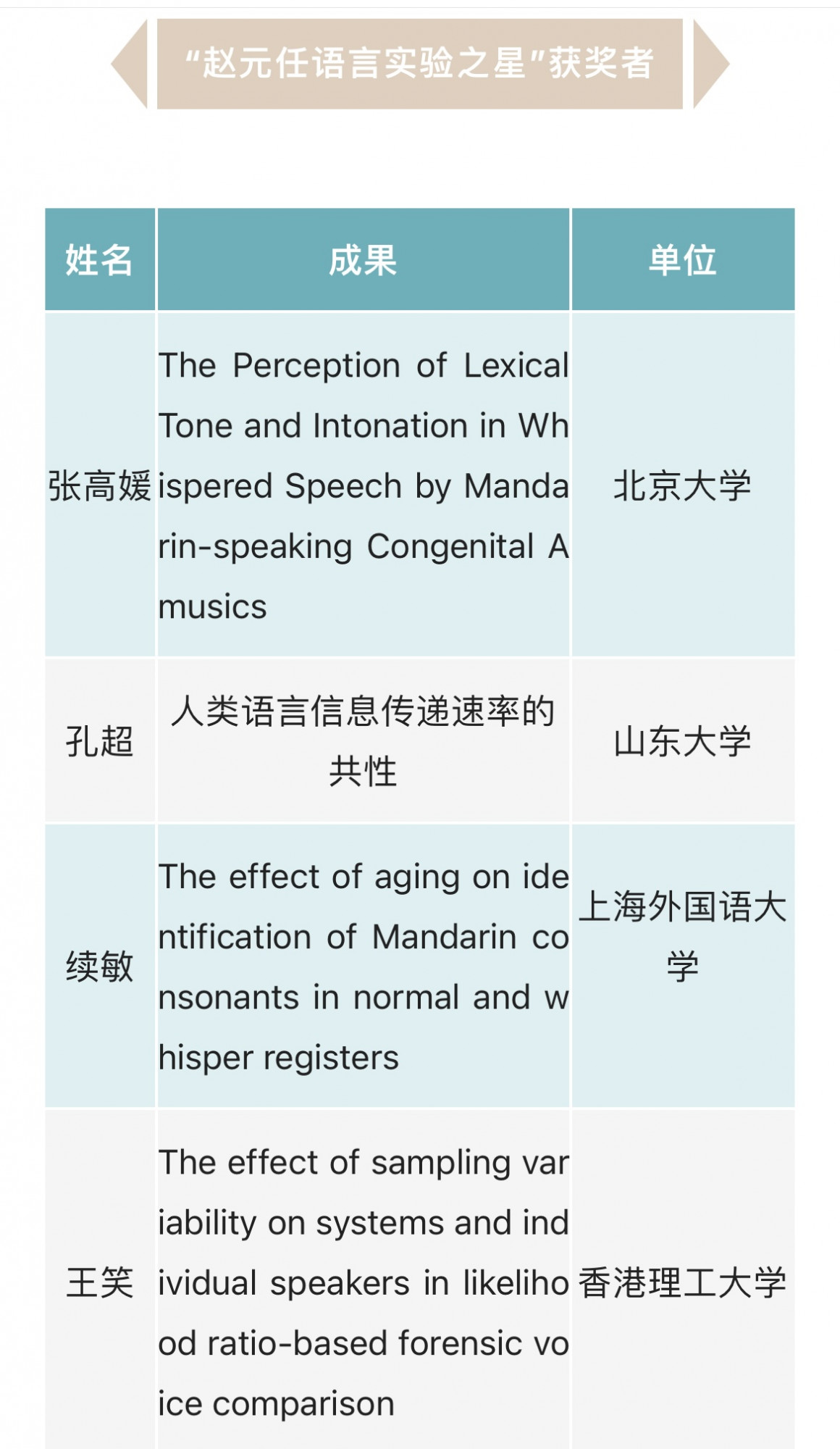
10
Last Updated at 2023/08/21
Congratulations to Dr. Yixin Zhang!!
Congratulations to our post-doc fellows Dr. Yixin Zhang being nominated for the the award of “The rising star of Yuen Ren Chao experimental linguistics”.
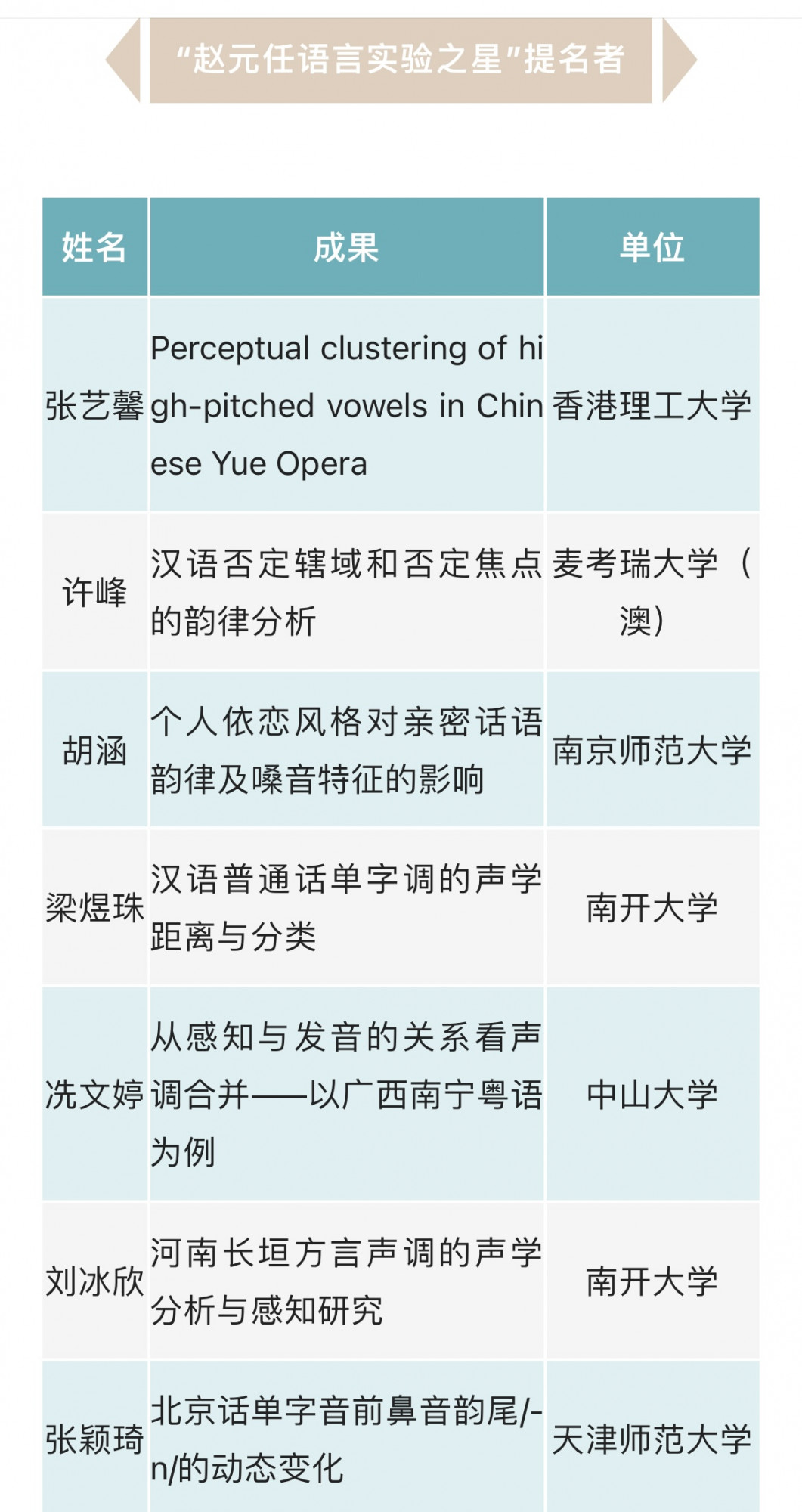
10
Last Updated at 2022/10/31
Young Innovative Researcher Award 2022
Dr. Chen Si Recognized with PolyU Young Innovative Researcher Award 2022
In a remarkable achievement, Dr. Chen Si, Assistant Professor at CBS, has been honored with the prestigious PolyU Young Innovative Researcher Award (YIRA) for 2022. Among 59 entries from 22 departments spanning diverse faculties and schools, Dr. Chen's outstanding contributions have secured his position as one of the six distinguished YIRA awardees.
Dr. Chen's research endeavors focus on a transformative area: robot-assisted training for children with autism spectrum disorder. His work aligns seamlessly with the YIRA's mission—to recognize young PolyU researchers under 35 who exhibit innovation, advance technology, and channel transformative solutions to address societal challenges, paving the way for a brighter future.
The YIRA celebrates visionary individuals like Dr. Chen who envision a positive change for the future. Awardees receive research funding support of HK$500,000 along with a personal cash prize of HK$20,000. This gesture not only acknowledges their research's novelty and impact but also encourages them to continue shaping the landscape of innovative research.
Dr. Chen Si's accomplishment underscores his dedication to pioneering research that holds the potential to drive profound positive changes in our society. His recognition within the YIRA fraternity further cements his role as a beacon of innovative research and a driving force for impactful transformations.
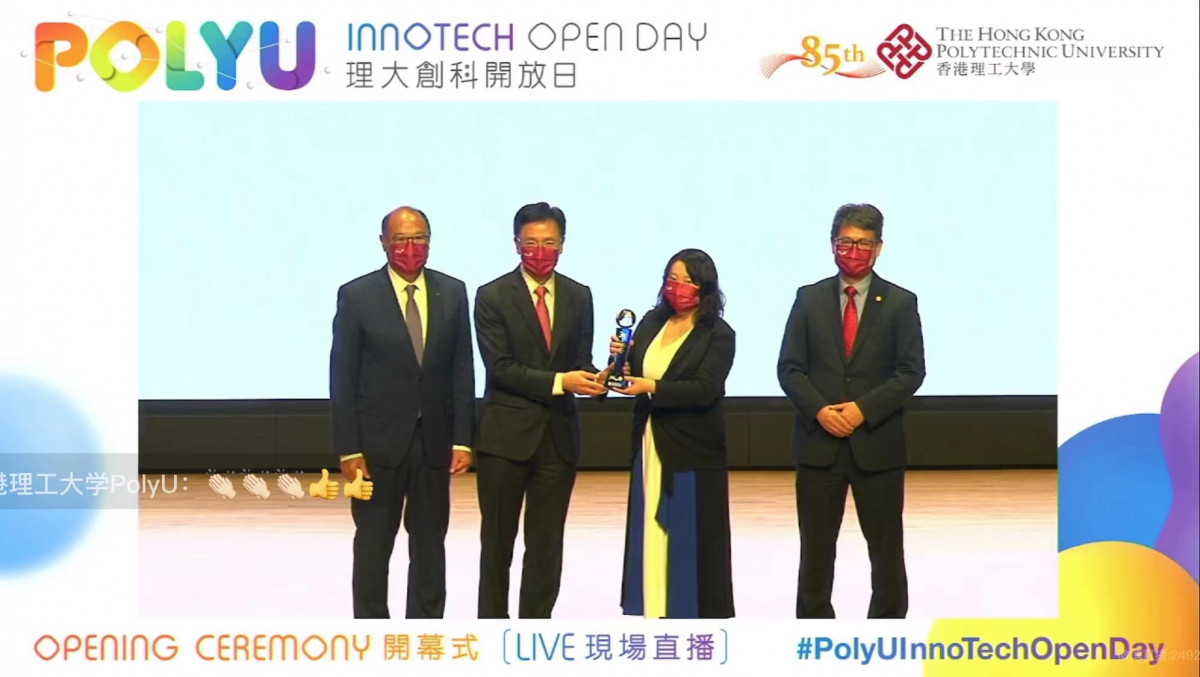
10
Last Updated at 2023/08/21
FH Project Funded by the University’s Project of Strategic Importance Scheme 2021-22
Dr Si Chen(CBS) and her research team has been awarded HK$2M by the University’s Project of Strategic Importance Scheme. The funded project is entitled “Robot-assisted speech and musical training in improving speech prosody production and processing by Cantonese-speaking autistic children”. Twenty-six applications were submitted for this round of exercise and fourteen of them were funded.
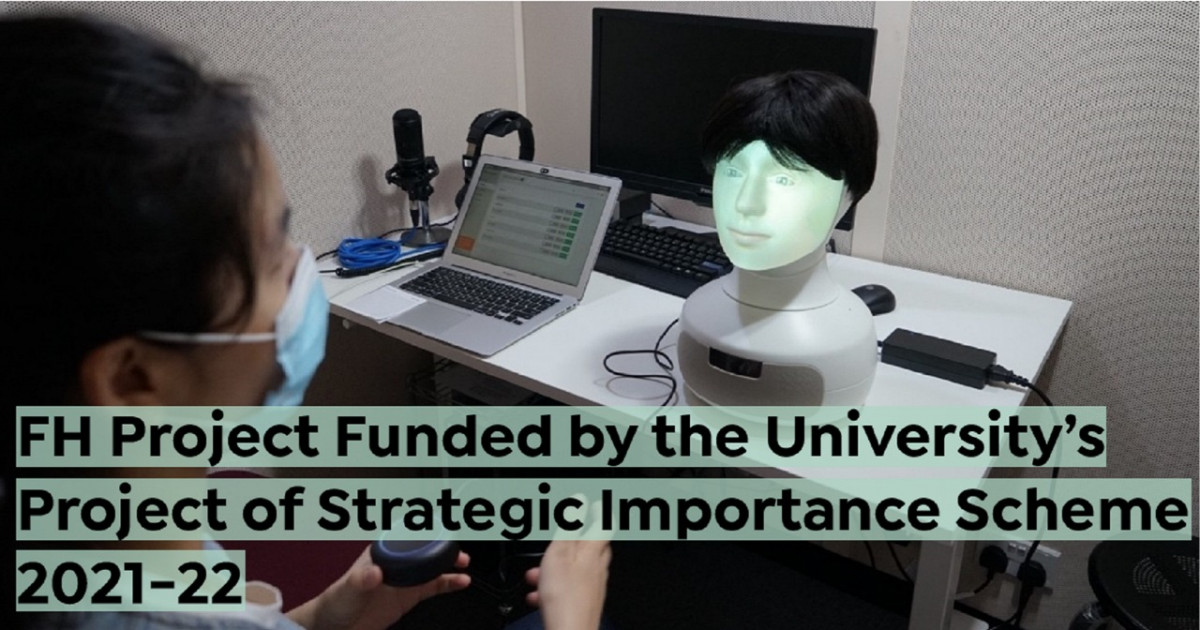
11
Last Updated at 2022/08/22